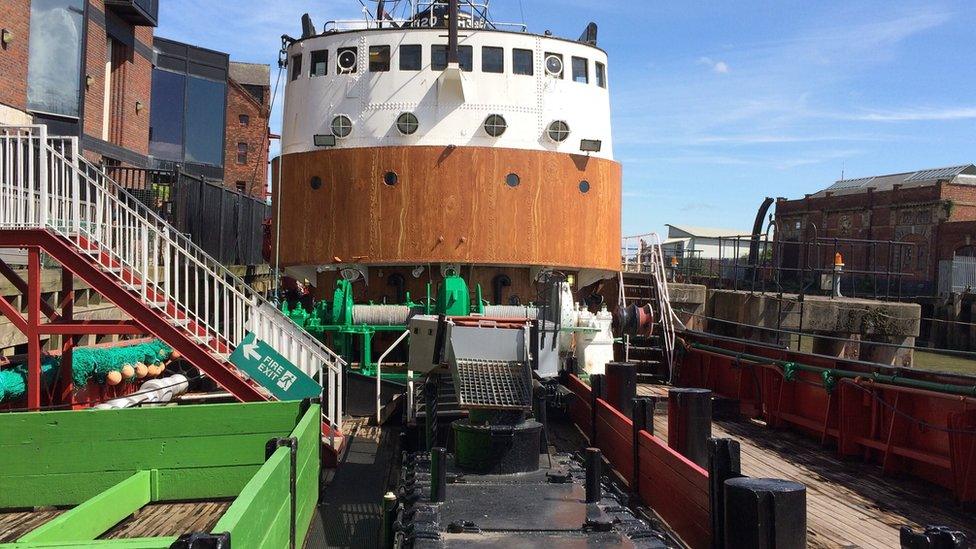Hull museum's rare whale exhibit dismantled and moved
- Published
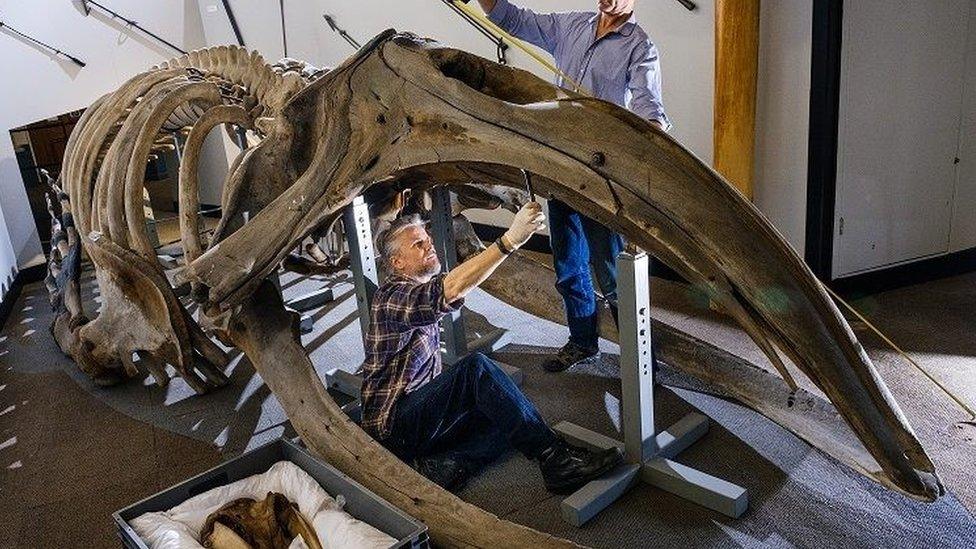
The "fragile skeleton" has been in place for the past 45 years
Work is under way to dismantle and move a 113-year-old whale skeleton from a maritime museum to allow for refurbishment work to take place.
The juvenile North Atlantic right whale, the largest item at Hull's Maritime Museum, was caught with its mother near New York in 1907.
The "fragile skeleton" has been in place for the past 45 years, and is one of 50,000 exhibits going into storage.
The specimen, along with several other whales, is being taken to Shropshire.
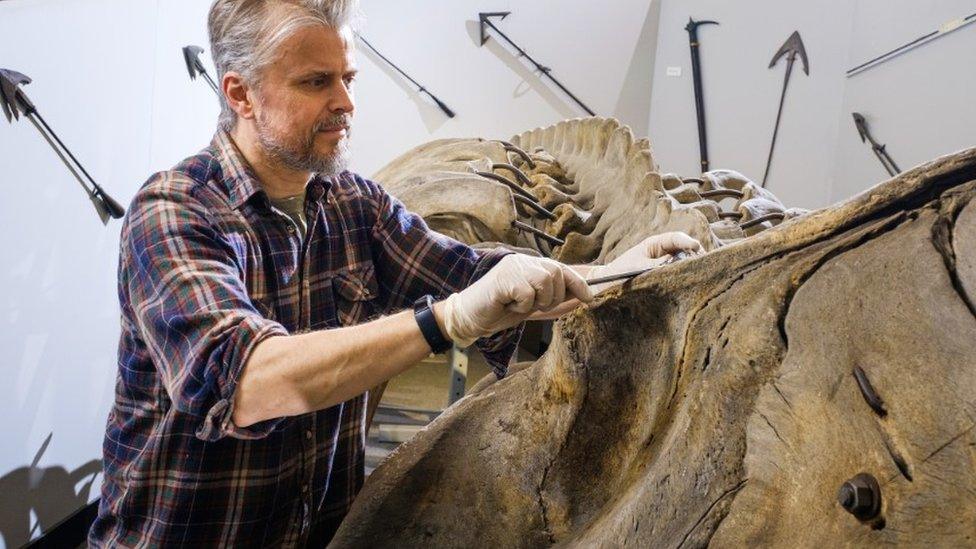
Specialist whale conservator Nigel Larkin is leading the removal work
Whale conservator Nigel Larkin, whose care the skeleton will be in, said he was delighted to be involved.
He said the 180 pieces of bone would take about three days to document, label and dismantle, and a further two months to be cleaned.
Mr Larkin added: "We look forward to returning the whale skeletons cleaner, in better condition, and mounted ready for installation in the newly refurbished galleries."
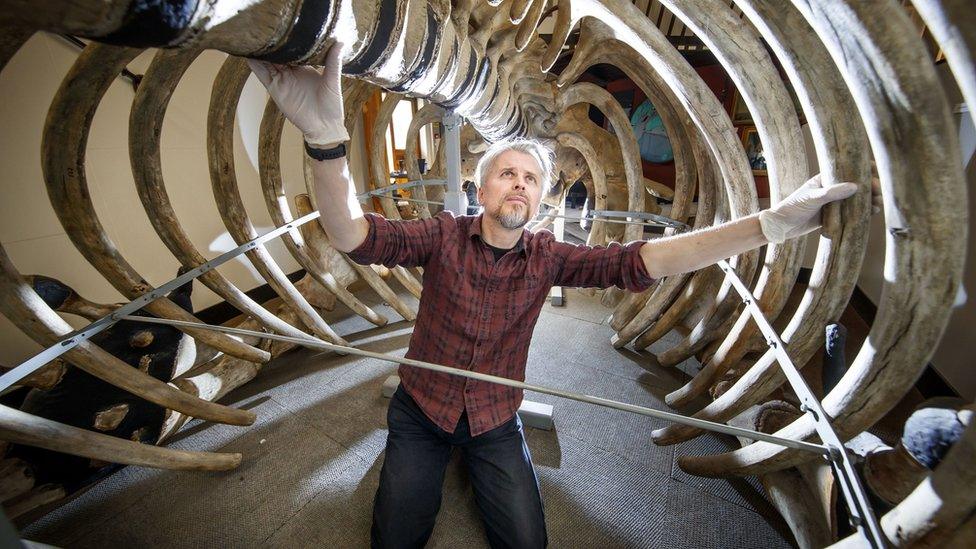
The whale, along with other specimens, is being transported to Shropshire to be cleaned and placed in storage
The skeleton was gifted to the city by the University Museum of Zoology in Cambridge after it was acquired from the American Museum of Natural History in New York, in exchange for a composite skeleton of a dodo.
Hull in turn donated the skeleton of a locally-stranded blue whale to the the Natural History Museum in London.
More news from across Yorkshire
Stathis Tsolis, the museum's conservation officer, said: "North Atlantic right whales are currently endangered, with only an estimated 400 left.
"These days the threat is largely from ship collisions and entanglement in fishing gear, [but] the rarity of this animal adds to the global significance of our specimen."
The work is part of a multi-million pound redevelopment scheme, which will also includes the renovation of the North End Shipyard and historic vessels the Arctic Corsair and Spurn Lightship.
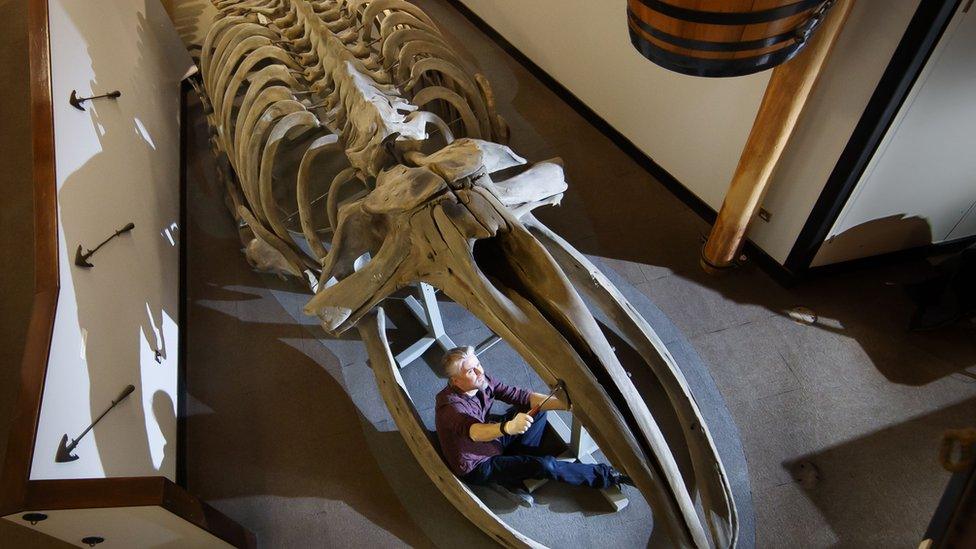
It is the first time the fragile skeleton has been moved in 45 years

Follow BBC East Yorkshire and Lincolnshire on Facebook, external, Twitter, external, and Instagram, external. Send your story ideas to yorkslincs.news@bbc.co.uk, external.
- Published24 April 2019

- Published27 June 2017
